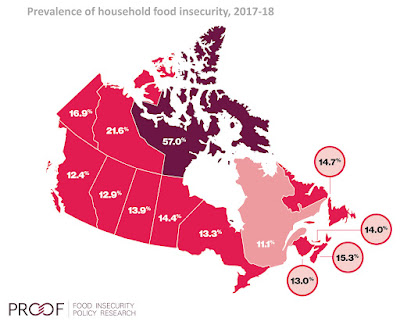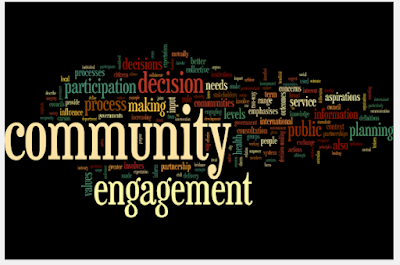History tells us that the Bank of Canada has a 0% success rate in fighting inflation by quickly raising interest rates. If a pilot told me that they'd only ever attempted a particular landing three times in the past 60 years with a 0% success rate, that's not a plane I'd want to be on. Unfortunately, that looks like the plane all Canadians are on now.
Free-market rationale says that rising interest rates will discourage borrowing and encourage savings. This seems little more than fantasy.
(1), mortgages are already borrowed, we can't un-borrow them, so increasing interest just increases the housing costs of real people. (2), the price of food and fuel continues to climb, so therefore, (3), ordinary people have even less money to save, if indeed they ever had any.
These rising interest rates and higher mortgage payments occur are occuring in a country where housing has become increasingly unaffordable. Rising interest rates are bad news for everyone -- except banks.
Meanwhile:
Exxon Mobil and Chevron raked in a mountain of profit this year. The net income for the world's oil and natural gas producers is set to double in 2022 from 2021, to a new high of $4 trillion. World Energy Outlook calls it "an unprecedented windfall for producers".
Loblaw, the corporate food giant, tried to package a routine holiday practice -- freezing prices on their store brand for a few months -- as noblesse oblige. Who do they think they're fooling? In the first quarter of this year, Loblaw enjoyed a 40% increase in profits compared with the previous year.
Meanwhile:
Nearly a quarter of Canadians have been forced to cut back on purchasing food.
Whose government is this?
The Liberal Government defends interest rate hikes, even though this has squeezed many Canadians in a fight for survival, and pushes many into food insecurity or outright hunger.
The Conservative Party criticizes the rate hikes, but that's just partisanship. History is quite clear on this point: if the Conservatives were in power, they would also support the Bank's moves, too.
Only Jagmeet Singh and the New Democrat Party speak out against this insanity.
But there's little enough that any party can do, as our laws are written to support big business and minimize government input. The NDP can call for investigations and strategies, but the fact is, a remedy would require an entire re-thinking of government's role in business.
It would require a government that protects people from predatory businesses, rather than enabling their voracious greed.
All this could change. Laws are not found in nature. They are written by people.
If the government governed for us, there would be laws against price gouging, there would be a "Robin Hood" tax, there would be caps on profits for essential goods. There would be a human right to food and shelter, and laws that supported those rights.
Instead, the laws of the land are designed to maximize the profits of the few, not the needs of the many.
We must ask, who does the Government represent? If Trudeau's Liberals support policies that are killing Canadians, how can they credibly say they are representing the people who elected them?
I am fed up
I am fed up -- I am way beyond fed up -- with governments that represent Loblaw, Suncor, and RBC. For the millions of Canadians who will only vote Liberal or Conservative, I ask, How's that been working out for you?
In the US, there is no viable third option. That has enabled the march to the extreme right. In Canada, where there is a developed third party, the majority are afraid to vote for it -- even those who claim to support its platforms. Supposedly progressive people routinely advise and pressure others to not vote NDP.
Obviously voting NDP will not magically fix these problems. But it would be a start. With Liberals and Conservatives, things will continue along the current path, which will only lead to greater wealth concentrated in the hands of fewer people. Then Canada will be well positioned for the desperation that allows fearmongers to incite scapegoating, violence, and all manner of repression.
I have no illusions about the NDP. They are a political party, and therefore subject to the same pitfalls as any other. But if all the partisan politics are equal, only the NDP speaks for ordinary Canadians.
Isn't it time to try something different?
Further reading
David Macdonald, quoted above, is the senior economist for the Canadian Centre for Policy Alternatives, a progressive think tank that I am proud to support. You can read Macdonald's analysis here.
Paul Krugman is also a good read on this topic. See his "wonking out" columns.
Here are three good stories on food insecurity in Canada -- all published pre-pandemic. Since that, it has gotten so much worse.
Wealth is health: The Reality of Food Insecurity in Canada
People Across Canada Are Struggling with Food Insecurity
More Canadians are food insecure than ever before – and the problem is only getting worse
Imagine something different.
What Would a Socialist Food Industry Look Like?
Capitalism and food: Hunger amidst plenty
Socialism for the bankers, capitalism for the rest of us -- so it goes



